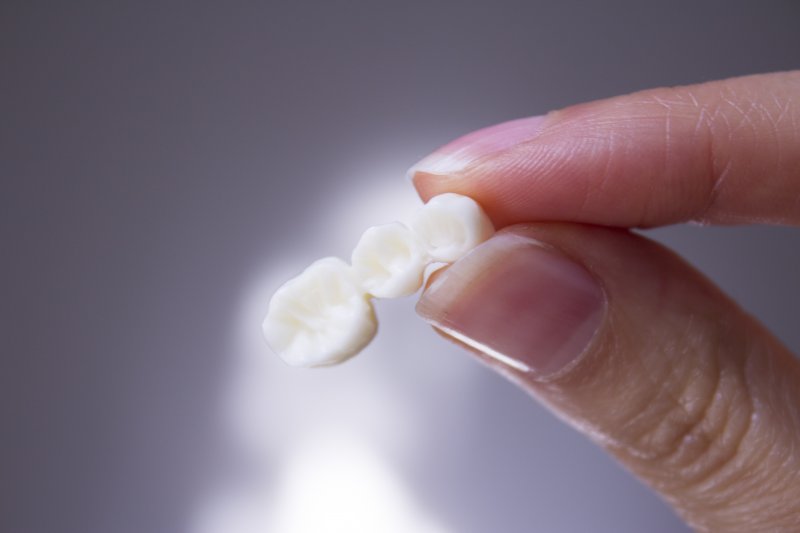
Investing in a dental bridge to complete your smile is a worthwhile decision – one that delivers many great benefits. From beautiful aesthetics to improved oral health, you will appreciate how your teeth look and work together to make daily living easier and more enjoyable. But can a dental bridge ever fail? Unfortunately, yes, it can. If you want to avoid this potential problem, learn what can cause this situation and what you can do to keep your new teeth in place as long as possible.
The Causes of Dental Bridge Failure
Although it is rare for a dental bridge to fail, you cannot rule out the possibility entirely. Certain problems can occur, such as:
- Unhealthy Habits: Damage is a leading cause of dental bridge failure. Unfortunately, if you practice unhealthy habits, you put your new teeth at risk. Whether you chew on pens and pencils when you’re stressed, eat hard foods like candy, nuts, etc., or grind your teeth while you sleep (bruxism), all of these can be harmful to your bridge and more importantly, the natural teeth holding your restoration in place.
- Poor Oral Hygiene: Dental bridges cannot develop decay or cavities; however, the teeth supporting your restoration can. As natural abutments, they can still be subject to harmful bacteria and plaque. If you don’t take proper care of your oral health, you risk dental bridge failure.
- Lack of Support: Before your dental bridge is put in place, your dentist should make sure your abutment teeth are healthy enough to support your restoration. If it is attached before this happens, your bridge could fail because the regular teeth are not strong enough. The same is true if you lack enough jawbone density. While a bridge does not connect to the bone, it must have the support of this area if it is to remain seated on your gums for a decade or more.
Other causes include irregular dental checkups and cleanings and cheap materials being used to create your dental bridge.
How to Avoid Dental Bridge Failure
When properly cared for, a dental bridge can last 15 years or more, so you’ll want to make sure that you take good care of your new teeth once they are put in place. You can do this by:
- See your dentist for regular checkups and cleanings every six months.
- Practice daily brushing, flossing, and rinsing to maintain healthy teeth and gums year-round.
- Make sure to properly clean your dental bridge.
- Seek professional help if you notice that your bridge feels loose or if it becomes damaged.
- Avoid hard, crunchy foods that can chip or crack your bridge as well as harm your supportive abutment teeth.
- Use any specialized dental instruments recommended by your dentist to care for your bridge.
Taking these preventive steps will save you a lot of time and money while living life with a dental bridge. If you have questions about post-placement care, don’t hesitate to contact your dental team for help.
About the Author
Dr. Avery Lane knew she wanted to be a dentist since she was 10 years old. After earning her dental degree at Indiana University School of Dentistry, she completed a General Practice Residency at the Malcolm Randall VA Medical Center in Gainesville, FL. Leading an exceptional team of professionals at Colorado Springs Complete Dentistry, she works closely with individuals suffering from tooth loss. Offering dental bridges as a trusted solution, she can rebuild teeth to allow for improved use and enhanced aesthetics. If you are missing multiple teeth, contact us at (719) 634-3204.
